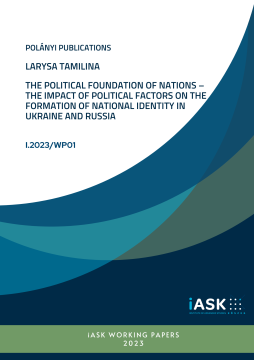Research & Studies
 About the Author
About the Author
Larysa Tamilina received her doctoral degree from Bremen University (Germany) and her master’s degree from the Catholic University of Leuven (Belgium). She was for many years employed by Zeppelin University as a lecturer and a postdoctoral researcher, where she worked on advancing theories of human capital accumulation and modeling individuals’ decision-making regarding their participation in various forms of learning. Additionally, she studied the impact of formal institutions on economic growth rates and levels of social trust in Europe. Her current research addresses the conflict in Ukraine-Russia relations and the possible implications that the recent war might have on various aspects of political and socio-economic developments in the two countries.
Abstract
This study focuses on the impact of different political situations on the disparate formation of national identity in Ukraine and Russia. Drawing upon the theory of ingroup identification, the analysis distinguishes 12 political factors. The four-mode model of identity proposed by Roccas et al. (2008) is applied to classify these factors into importance-, commitment-, superiority-, and deference-driven variable groups. World Values data are used to analyze how each of the factors predicts the likelihood of one’s identification with the nation. The results show that the importance- and commitment-driven political determinants primarily influence the national identity in Ukraine. In contrast, the Russian national identity is largely shaped by superiority- and deference-driven political variables. Based on these findings, the study concludes that the two countries differ in their identity profiles and the meanings assigned by the members of their nations to identification.
Keywords: National identity, political factors, Ukraine-Russia disparities, identity model, ingroup identification
I.2023/WP01